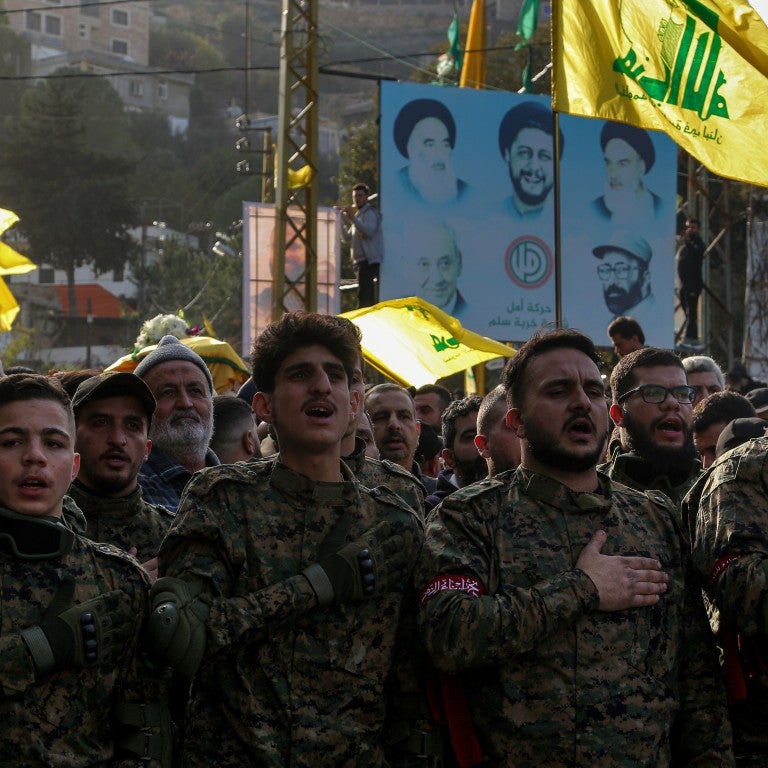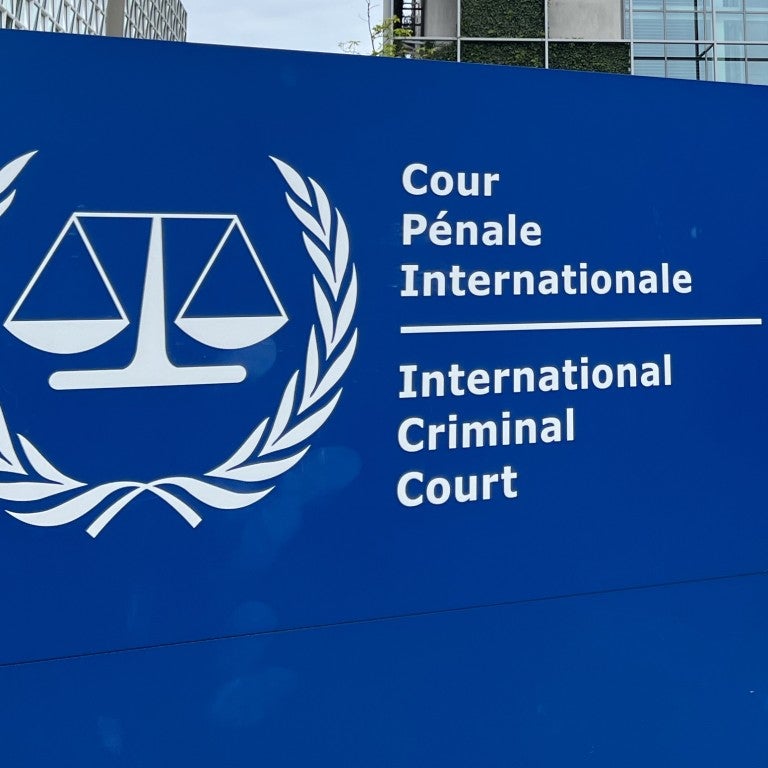May 23, 2024
On May 10, the Biden administration released a report assessing Israel’s conduct amid the ongoing war against the Palestinian terror group Hamas.
The 46-page State Department report, formally known as the National Security Memorandum 20, was ordered by President Biden earlier this year to verify whether seven different countries - including Israel – adhere to international law in their use of U.S.-made weapons.
While the report was critical of certain areas of Israel’s conduct in Gaza, it did not conclude that Israel’s actions were inconsistent with international law. As such, it does not change the status quo of U.S. military aid to Israel.
Here are key takeaways from the report and its review of Israel’s war against Hamas.
Israel’s “extraordinary military challenge” and Hamas' violations of international law
On October 7, Iranian-backed terrorists from Hamas and Palestinian Islamic Jihad launched an unprovoked and unprecedented large-scale attack on southern Israel that killed more than 1,200 people and took 253 hostages, including U.S. citizens.
The report confirms the “extraordinary military challenge” that Israel is confronting in Gaza, including Hamas’ use of human shields; intentionally using schools, hospitals, residential buildings, and international organization facilities for military purposes; and its vast tunnel network beneath civilian infrastructure to hide its leaders and fighters to launch attacks on Israel.
“Military experts describe Gaza as being as difficult a battlespace as any military has faced in modern warfare,” the report said.
It also accused Hamas of consistently violating international law.
“There are also credible reports that individuals associated with these organizations raped or committed other acts of sexual violence against women and girls killed and abducted on October 7,” the report said, stating that “Hamas does not follow any portion of and consistently violates international law.”
No evidence that Israel’s actions are inconsistent with international humanitarian law
The State Department report did not find any specific instances where Israel’s actions were inconsistent with international humanitarian law.
In its findings, it noted that Hamas’ use of human shields, as well as the lack of U.S. government officials on the ground, have made it difficult to assess or reach conclusive findings on incidents in the Gaza Strip.
While the report did say that it was “reasonable to assess” that Israel may have used U.S.-made weapons inappropriately, it notes that “it is also important to emphasize that a country’s overall commitment to IHL [international humanitarian law] is not necessarily disproven by individual IHL violations, so long as that country is taking appropriate steps to investigate and where appropriate determine accountability for IHL violations.”
Indeed, it recognized several important points:
- Israel has institutions and processes charged with upholding the implementation of international humanitarian law.
- Israel has provided the U.S. with a written analysis of its legal positions regarding its military operations and detailed its legal review of its targeting decisions.
- Israel has several ongoing, active criminal investigations pending, and hundreds of cases are under administrative review.
Furthermore, while the report found that it was possible for more actions to be taken to avoid civilian harm, it did not find any direct indication of Israel intentionally targeting civilians in Gaza.
Israel has gone to great lengths to warn Palestinian civilians ahead of military operations. For example, ahead of its recent targeted operation in eastern Rafah neighborhoods, hundreds of thousands of leaflets, phone calls, text messages, and social media posts in Arabic were disseminated to ensure the approximately 100,000 Palestinian civilians in these areas were evacuated out of harm’s way.
Israel has substantially increased humanitarian access and aid, but remains insufficient
The report found that Israel is not prohibiting or restricting the transport or delivery of U.S. humanitarian assistance in the Gaza Strip.
Nevertheless, the report cited that Israel, particularly in the initial months of the war, “did not fully cooperate” with efforts to maximize humanitarian assistance. In particular, it said there were “numerous instances” of Israeli actions that delayed or had a negative effect on the delivery of aid.
It should be noted as a result of Hamas’ assault on October 7, key border crossings between Israel and the Gaza Strip were damaged by Hamas terrorists, including Kerem Shalom and Erez Crossings. Kerem Shalom was later repaired and re-opened in December 2023 to facilitate humanitarian aid, while Erez was re-opened in May 2024 for humanitarian aid.
While those criticisms were noted, it also recognized that getting aid to the Palestinians in Gaza is a “complex undertaking” and criticized Hamas for embedding itself within a civilian population, appropriating dual-use items for military purposes, and using humanitarian aid to maintain its control over Gaza.
Citing international criticism of Israel’s humanitarian efforts, including the potential risk of famine in Israel, it importantly notes that Israel has “substantially” increased humanitarian access and aid flow into Gaza.
Among the positive steps the report outlined include:
- Significantly increasing the number of trucks entering Gaza
- Opening the Erez crossing into northern Gaza
- Facilitating humanitarian shipments through Ashdod port
- Expanding the use of the Jordan corridor
- Repairing and opening routes to northern Gaza
Further, the report noted that April showed “the highest volume of humanitarian and commercial supplies since the conflict began.”
Additionally, it described Israel’s efforts to reopen and repair three major water pipelines into Gaza, and increase the supply of fuel to humanitarian groups, including new bakeries in northern Gaza.
U.S. military support for Israel will not change
Despite criticism of Israel’s conduct amid the ongoing war, the report’s conclusions do not trigger any change to the U.S. support for Israel. The report is also independent of the recent news on the pause of certain weapons transfers to Israel by President Biden and the recent approval by the president of $1 billion in military hardware to Israel.





